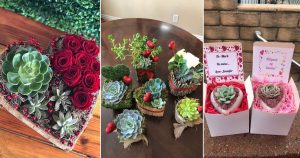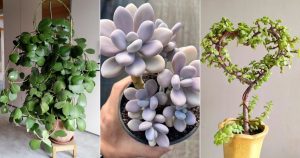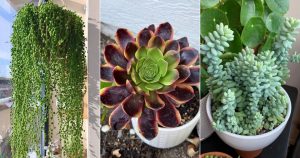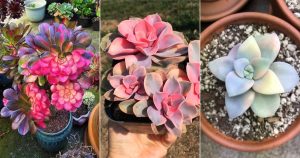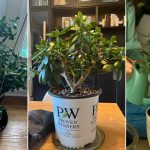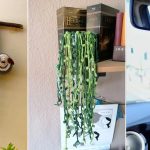Here we are with the list of succulents with purple flowers that can imbue a feeling of strength and royalty in any house or garden!
Purple is a special color that used to be for kings and queens. It shows wisdom, power, and spirituality. Purple is a mix of red’s strength and blue’s calmness. This color brings a hint of regal ambiance to any home, and if you love gardening, succulents with purple flowers are a must-have. Check out our list of such blooms!
Succulents With Purple Flowers
1. Kalanchoe
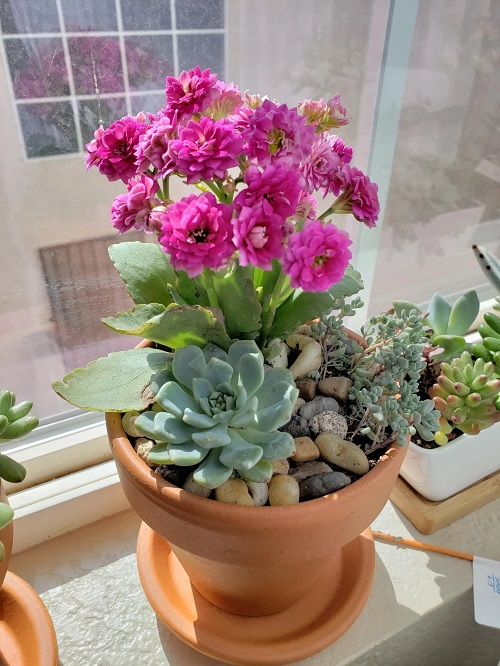
Botanical Name: Kalanchoe blossfeldiana
Kalanchoe, has pretty purple flowers. It’s tough and can survive even if you forget to water it. However, do note that all the family members of Kalanchoe are toxic.
2. Hardy Ice Plant
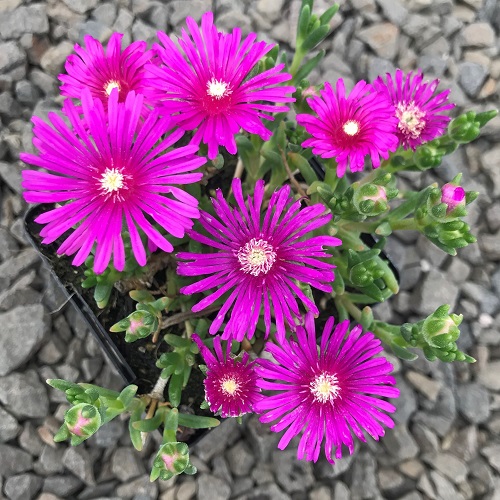
Botanical Name: Delosperma cooperi
Hardy Ice plant has these cool purple flowers that stand out against its green leaves. Its slow growing and spreading nature make it great for covering the ground, filling gaps with a blanket of flowers.
It’s tough too, perfect for gardens where it’s really sunny. Bees and butterflies love it because of those purple flowers.
3. Redmaids
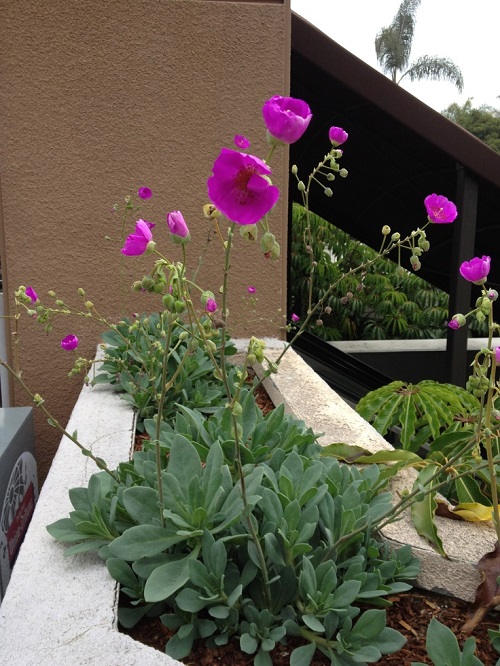
Botanical Name: Calandrinia
Redmaids has clusters of tiny purple flowers. It’s good at growing in sandy places, like the beach. Those little purple flowers are like magnets for butterflies and bees.
4. Old Lady Cactus
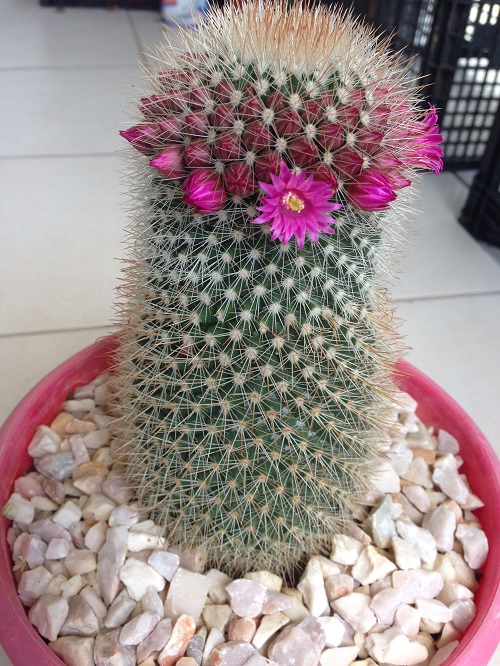
Botanical Name: Mammillaria hahniana
This cactus has small purple flowers on top of its spiky stems. It grows slowly, so you don’t have to do much to take care of it. And the best part is, it is not at all toxic to humans!
5. Purple Heart Plant
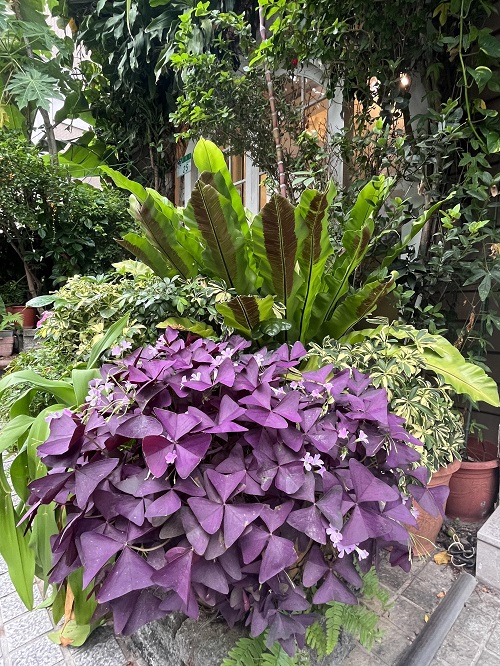
Botanical Name: Tradescantia pallida
Purple Heart Plant has leaves that are purple, not just the flowers. It’s good for hanging baskets or as ground cover. The purple leaves help protect the plant from too much sun.
6. Evergreen Orpine
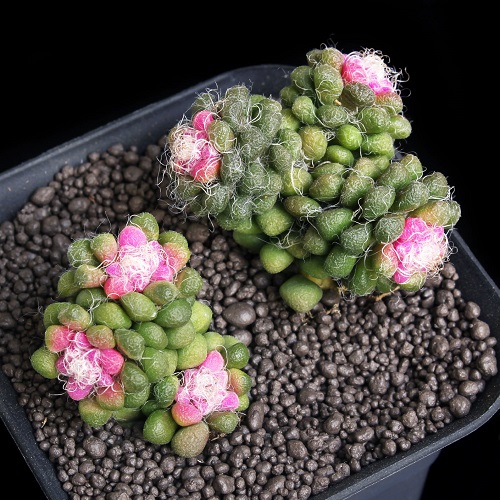
Botanical Name: Hylotelephium anacampseros
Evergreen Orpine has tiny purple flowers that cover its green leaves. It attracts butterflies and bees, which gives you more lively vibes. You can see those purple flowers in late summer.
7. Beavertail Prickly Pear
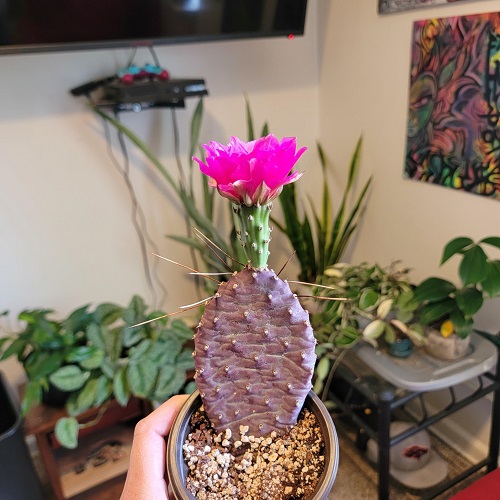
Botanical Name: Opuntia basilaris
Beavertail Prickly Pear has bright purple flowers on flat stems. You can eat its fruit, and it doesn’t need a lot of water. It’s purple flowers are like a sign for bees to come and pollinate.
8. Strawberry Hedgehog Cactus
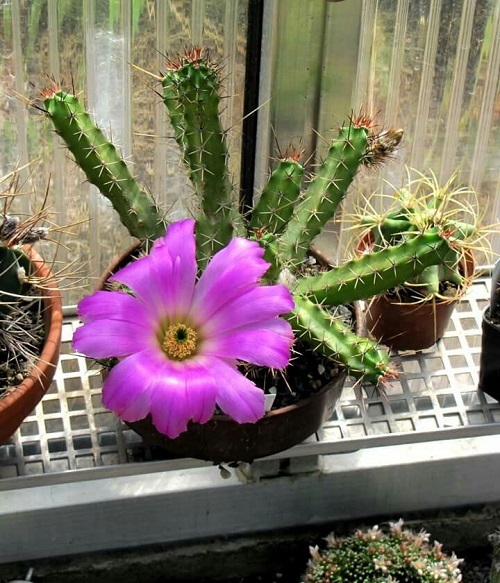
Botanical Name: Echinocereus engelmannii
Strawberry Hedgehog Cactus has purple flowers on its spiky stems. It’s good for places with rocks or sand and mostly found in desert areas. Hummingbirds like to visit those purple flowers in spring. Plus, its inch-long fruit is edible too!
9. Christmas Cactus
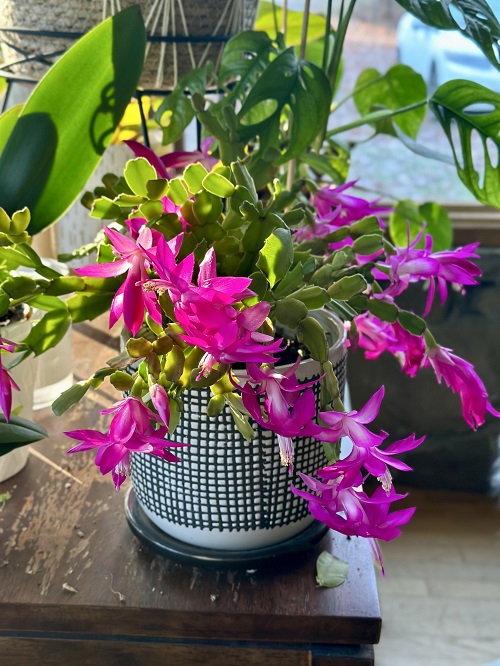
Botanical Name: Schlumbergera
Christmas Cactus blooms with delicate purple lotus-like flowers in winter. It’s easy to grow in hanging baskets. The purple flowers make your home look festive during the holidays. Plus, they are non-toxic to dogs and cat, too!
10. Sulcorebutia Cactus
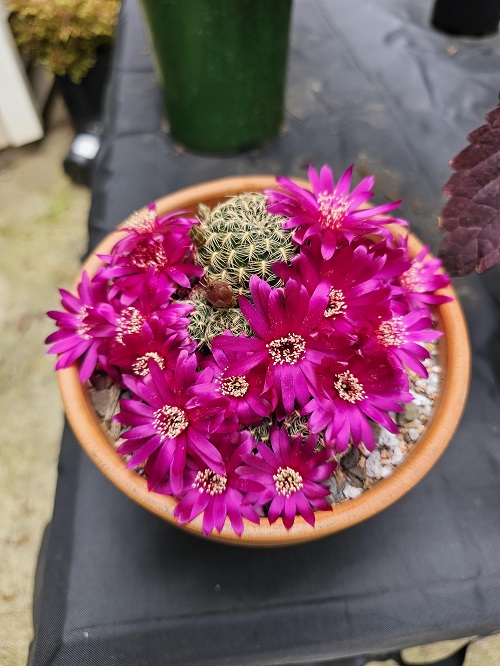
Botanical Name: Sulcorebutia albissima
Loved for their easy care and native to South America, they bring joy to cactus enthusiasts with their cute size and beautiful blooms. This cactus has small purple flowers in a bunch which attracts bees and butterflies, too. It likes rocky places, like mountains.
11. Rose Cactus
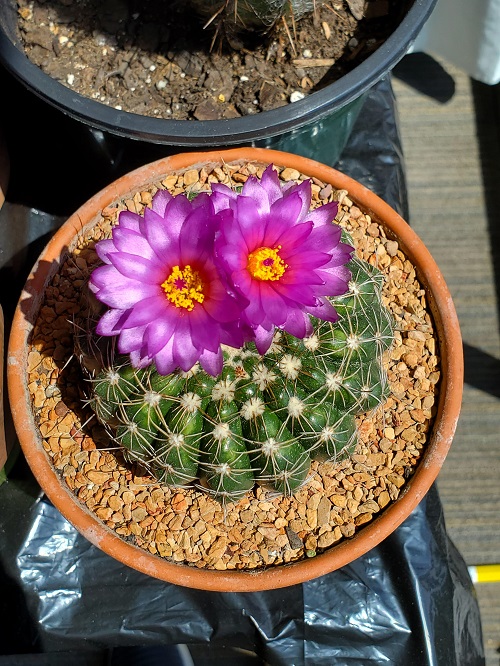
Botanical Name: Rhodocactus grandifolius
Rose Cactus has purple flowers that look like tiny roses. It’s tough and can survive in dry places. This one is not your average cactus; it has real leaves and thorns, giving it that extra touch of character. Plus, its fruits are edible however they are bit sour in taste.
12. Black Bells
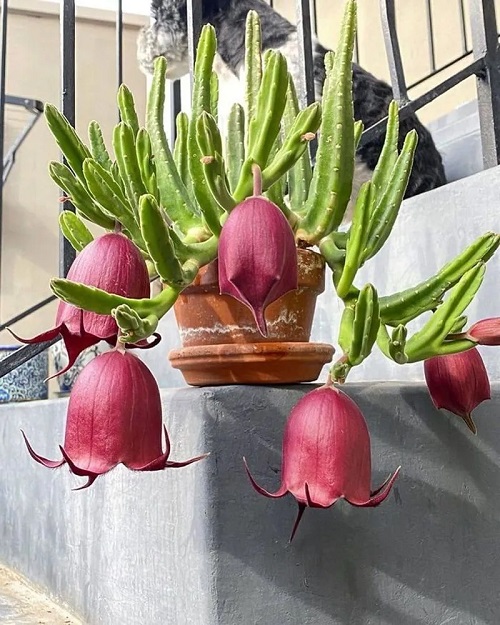
Botanical Name: Stapelia leendertziae
Black Bells has dark purple flowers that smell bad to attract bugs. It grows fine in soil that doesn’t have much food for plants. Even though those bell-shaped purple flowers smell weird, they’re good for making sure the plant makes more flowers.
13. Dark Purple Caralluma
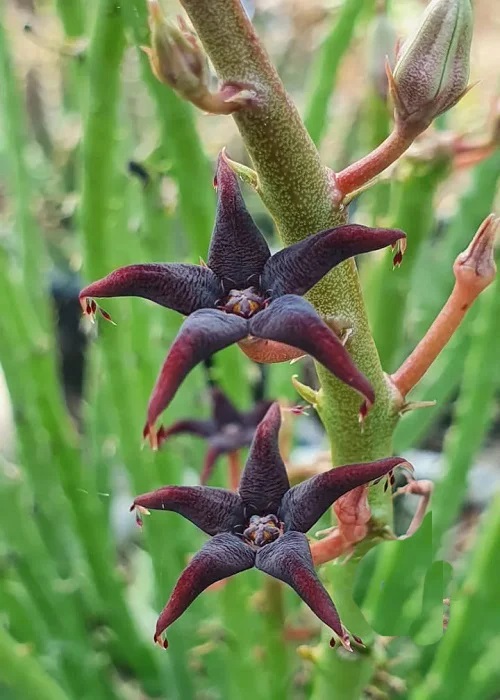
Botanical Name: Caralluma stalagmifera
It has thick succulent stems and small leaves, and it shows off tiny star-shaped flowers in deep purple, tipped with purple-yellow. Plus, it’s a survivor, thriving in dry conditions where other plants struggle.
In old-medicine, people used Caralluma stalagmifera because they thought it could help with different health problems like it could make you pee more, help you eat less, and even treat diabetes and swelling.
14. Moss Rose
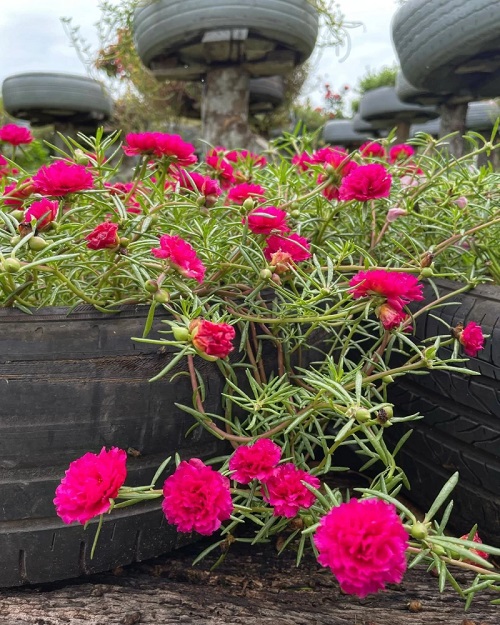
Botanical Name: Portulaca grandiflora
Moss rose is a semi-succulent plant, blooms in clusters of colorful cup-shaped flowers in shades of pink, yellow, red, orange, and purple. It is like your garden’s little water saver, keeping moisture in its chubby leaves and stems. It’s bright green leaves are slender and stretch out along reddish stems.

